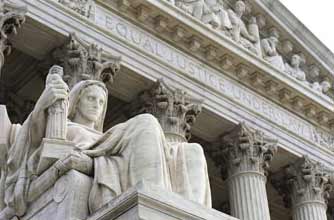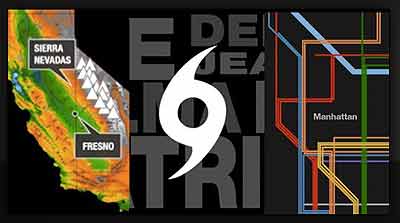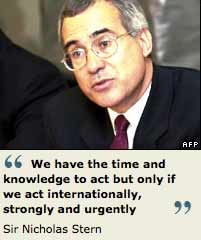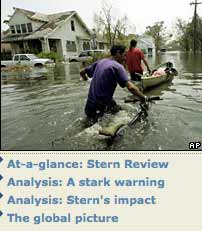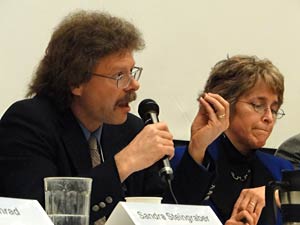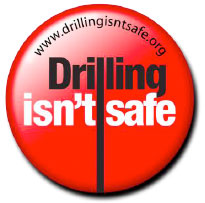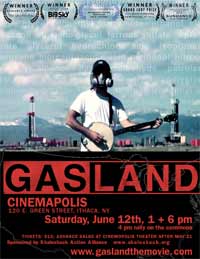Biblio
Arkansas based blog on Facebook.
All members of the International Brotherhood of Magicians "and gas drillers" agree to:
1) Oppose the willful exposure to the public of any principles of the Art of Magic, or the methods employed in any magic effect or illusion.
First rule in the magicians code. Never reveal your secrets.
Last week there was sort of a vote at AOGC on something they called Rule B19. Arkansas joined Wyoming in becoming one of 2 states that required full disclosure of what frac fluid contains. It was in all the papers. Hooray!
Closer examination revealed that it really wasn't a rule at all, but instead a really a clever bit of slight of hand. It was a magic trick by AOGC to allow the companies to say they were doing something, without really having to do anything at all.
Rule B19 was supposed to cause the companies involved in hydraulic fracturing to completely disclose every chemical involved in the process. We were told by AOGC director Larry Bengal:
"We will tell you what's in the cake, but not teach you how to bake the cake."
See: Arkansans for Gas Drilling Accountability. Dec. 20, 2010. "The SHAM EXPOSED! Log Cabin Democrat and Times Record Expose Last Minute Loophole in AOGC's Rule B-19".
Plaintiffs in Connecticut v. American Electric Power allege that six utilities' emissions are a public nuisance.
U.S. Supreme Court Monthly Argument Calendar. Tuesday, April 19, 2011. 10-174. AMERICAN ELECTRIC POWER CO. V. CONNECTICUT.
See: SCOTUS (Supreme Court of the United States) Blog.
In the seemingly endless climate change debate, the regulation of greenhouse gases (GHGs) is a contentious issue among scientists, advocacy groups, lawmakers and businesses. Opinions are strong and varied as to how GHG emissions affect the environment and to what extent they should be controlled.
In 2004, a group comprising eight states, New York City and three non-profits sued six GHG-emitting electric power corporations—American Electric Power Company, American Electric Power Service Corporation, Cinergy Corporation, Southern Company, Tennessee Valley Authority and XCEL Energy—for allegedly contributing to global warming. The plaintiffs in Connecticut v. American Electric Power claimed the utilities’ carbon dioxide (CO2) emissions were a public nuisance causing an array of environmental and personal injuries, including smog-induced respiratory problems; deaths related to prolonged heat waves; property-damaging floods; a decrease in mountain snowpack, a key water source for California; beach erosion from rising sea levels; and loss of biodiversity.
Arguing the utilities’ CO2 emissions constitute 10 percent of the U.S.’s total CO2 emissions, the plaintiffs sought injunctive relief that would hold the defendants jointly and severally liable for causing a public nuisance, cap the utilities’ emissions and require them to reduce emissions by a certain percentage annually for at least 10 years.
A trial court dismissed Connecticut v. AEP, saying it presented political questions that "are not the proper domain of judges" and that the "scope and magnitude of the relief Plaintiffs seek reveals the transcendently legislative nature of this litigation."
But on appeal, the 2nd Circuit allowed the plaintiffs’ nuisance claims to proceed. When the appeals court denied the defendants’ petition for en banc review, the utilities filed a petition for certiorari, which the Supreme Court granted on Dec. 6, 2010.
"This case had to come to the high court," says Patrick Raher, a partner in Hogan Lovells’ environmental group. The Supreme Court must make it clear that the legal system has no business creating CO2 policies, he says.
See: New climate change case headed to Supreme Court. AP. April 18, 2011.
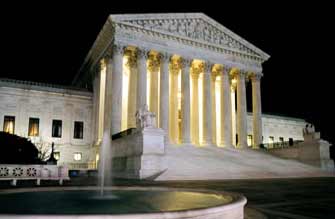 Proceedings and Orders | American Electric Power Company Inc., et al., Petitioners v. Connecticut, et al. August 4, 2010.
Proceedings and Orders | American Electric Power Company Inc., et al., Petitioners v. Connecticut, et al. August 4, 2010.
The Obama administration, in a recently filed brief in the Connecticut case, American Electric Power v. Connecticut, is arguing that it may not be prudent for the high court to allow these types of cases to go forward. (Coyle, 2010)
"If the plaintiffs can tag utilities for CO2 liability, the damages are potentially staggering," says McCarter & English Partner Wylie Donald, co-chair of the firm’s Climate Change and Renewable Energy Practice.
Allen Kacenjar, a principal in Squire Sanders’ Global Climate Change Practice, says Connecticut v. AEP has serious implications for companies with GHG-emitting facilities. "What’s at stake is whether the federal courts will basically become a clearinghouse for climate change tort actions," he says.
The Supreme Court will hear arguments on April 19, and justices will then attempt to answer the case’s crucial question: Can courts regulate GHG emissions in the absence of comprehensive climate change legislation?
See: Google Scholar Search on this case.
In 2009, the U.S. Court of Appeals for the Second Circuit upheld the states’ right to bring this lawsuit. The power companies appealed the case to the Supreme Court, which will hear arguments on April 19, and is expected to decide the case by July.
Attorney General Schneiderman is vigorously defending the appeals court’s ruling to protect New Yorkers from the harms caused by climate change. These harms include causing asthma and other respiratory diseases, eroding beaches and inundating properties on Long Island, increasing heat-related deaths in New York City, lowering water levels in the Great Lakes that harm the shipping industry, and killing off hardwood forests in the Adirondacks.
See: New York State Office of the Attorney General. "A.G. Schneiderman Urges U.S. Supreme Court to Uphold States' Rights to Sue Carbon Dioxide Polluters." New York State Office of the Attorney General. March 14, 2011.
See: A copy of the Attorney General's Brief 10-174. Filed March 2011.
See: New York State Office of the Attorney General: Media Center. "Schneiderman to Feds: Commit to Study Safety Impacts of "Fracking" in Delaware River Basin in 30 days or I'll Sue." 2011-04-18.
See also: Pew Center on Global Climate Change. “Massachusetts et al. v. EPA et al..” Pew Center on Global Climate Change 2 Apr. 2007. Web. 4 Apr. 2011.
Supreme Court Decision in Massachusetts et al vs. Environmental Protection Agency
On April 2, 2007 the Supreme Court released its ruling in the case of the state of Massachusetts vs. the Environmental Protection Agency. Massachusetts and eleven other states, along with several local governments and non-governmental organizations (petitioners), sued the EPA for not regulating the emissions of four greenhouse gases, including carbon dioxide (CO2), from the transportation sector. The petitioners claimed that human-influenced global climate change was causing adverse effects, such as sea-level rise, to the state of Massachusetts. In a 5-4 decision, the court ruled in favor of Massachusetts et al, finding that EPA has the authority to regulate CO2 and other greenhouse gases.
The decision was written by Justice Stevens and was signed by Justices Kennedy, Souter, Bader Ginsburg, and Breyer. Chief Justice Roberts and Justices Alito, Scalia, and Thomas dissented.
See: Coyle, Marcia. “High court could melt climate-change cases.” The National Law Journal | Law.com 13 Sept. 2010. Web. 13 Apr. 2011.
See also: LaMonica, Martin. "Supreme Court rules EPA can regulate greenhouse gases". 2007-04-02. CNET News. Web. 11 Apr. 2011.
See also: Broder, John M. "Keep Courts Out of Climate Policy, G.O.P. Lawmakers Say." 2011-02-08. NYT Green. Web. 11 Apr. 2011.
This is an excellent background on the Marcellus Shale Gas Rush. Website is sponsored by Shell which may signify a pro-industry editorialization. Nevertheless, the photographs and production are impressive. Shell's message here:
"Let's Build a Better Energy Future. Let's Go. See how we're helping to secure energy for the next generation."
See: Ed Pilkington. "Shell pays out $15.5m over Saro-Wiwa killing." The Guardian. June 9, 2009.
See: Jad Mouawad. "Shell to Pay $15.5 Million to Settle Nigerian Case." NYT. June 8, 2009.
Forcing Gas Out of Rock With Water
The populous mid-Atlantic market pays a relatively higher price than the South for energy, at the same time that exploration and finding costs are dramatically lower in the Marcellus than in the Barnett and the other shales around the United States.
“It’s very repeatable,” says Range spokesman Matt Pitzarella. “Every well in Washington County is either good or great.”
See: Candice O'Grady. "Newsweek Greenwashes the Oil Lobby for Real." Feb. 2010.
In a move that may derail a comprehensive climate change and energy bill in the Senate, one of the measure’s central architects, Senator Lindsey Graham, has issued an angry protest over what he says are Democratic plans to give priority to a debate over immigration policy.
Mr. Graham, Republican of South Carolina, said in a sharply worded letter on Saturday that he would no longer participate in negotiations on the energy bill, throwing its already cloudy prospects deeper into doubt. He had been working for months with Senators John Kerry, Democrat of Massachusetts, and Joseph I. Lieberman, independent of Connecticut, on the a legislation, which they were scheduled to announce with considerable fanfare on Monday morning. That announcement has been indefinitely postponed.
In his letter to his two colleagues, Mr. Graham said that he was troubled by reports that the Senate Democratic leader, Harry Reid of Nevada, and the White House were planning to take up an immigration measure before the energy bill. Mr. Graham has worked with Democrats in the past on immigration matters and was expected to be an important bridge to Republicans on that issue, as well as on energy.
Brendan Smialowski for The New York Times
Senator Lindsey Graham, right, with Senators John Kerry and Joseph I. Lieberman at a news conference in November about proposed energy legislation. Mr. Graham sent his two colleagues a letter Saturday saying he would no longer participate in negotiations on the bill.
Joshua Tauberer is the “grandfather” of the open-data movement for the U.S. Congress and a “data crusader”.
GovTrack.us, launched in 2004, was the first website to apply the principles of open data and Web 2.0 to the U.S. Congress. It catalyzed the development of a community of like-minded developers and shaped the data-oriented open government movement that we see today.
See: Marshall Kirkpatrick. "Data Hacker Pageranks Members of the US Congress." ReadWriteWeb. Dec. 27, 2010.
See: Dirty Energy Money.
Of the over 400 amendments offered on the House government-funding measure, the 2011 Continuing Resolution (H.R. 1), dozens are focused on climate change, energy policy, and environmental protection. The existing language in the budget bill is already designed to deny global warming, slash and burn public health and green jobs, but the amendments would take even more radical steps to reward polluters who are killing our children’s future. Republican amendments, if fully enacted, would:
– Eliminate the White House Council on Environmental Quality, the Special Envoy for Climate Change, the Assistant to the President for Energy and Climate Change, the NOAA Climate Service, the Department of Energy’s ARPA-E, National Science Foundation K-12 funding
– Block US funding for the Intergovernmental Panel on Climate Change and the Global Environment Facility
– Suspend enforcement of fisheries laws and construction and conservation acquisition programs of the National Parks and Department of the Interior
– Block rules for cement plant pollution, coal ash, industrial boiler pollution, water quality, climate change pollution, climate change adaptation, energy-efficient lighting, mountaintop removal, atrazine, and water conservation.
"Most of these amendments are budget neutral, not lowering the deficit one cent. Several defund extremely effective jobs programs that cost only a few million dollars. The goal of these amendments is not fiscal responsibility or jobs creation, but polluter protection, even though the pollution is poisoning babies, causing the elderly to suffer, and destroying America’s natural bounty.
Max Shelby | Vincent Alabama said, find how your representative voted and give 'em hell!
These were revenue-neutral amendments, meaning they weren’t aimed at reducing the federal budget deficit, but were designed solely to prevent the EPA and other government agencies from updating and enforcing clean air and clean water laws. In short, it was Christmas for polluters.
Profile
Brad Johnson is a climate researcher-blogger at the Center for American Progress Action Fund. He blogs at the ThinkProgress Wonk Room on the climate crisis, energy policy and building a green economy.
See: A Life’s Value May Depend on the Agency, but It’s Rising
Why don't Congressional climate change zombies see that climate change is a national security issue?
This website is a well-designed student journalism project that includes stories, interactive features, video, and links to documents.
According to a recent New York Times series, leaked EPA documents have exposed a decades-old effort to hide the dangers of natural gas extraction.
Nevertheless it's going full tilt without the scientific, objective regulation, and analysis that important security issues warrant, even though industry experts have known about the many risks it poses to the environment and our health for years. (Neil Zusman, 2011-03-11).
National Security Journalism Initiative
The Medill School of Journalism, a national leader in journalism education for decades, is now with the assistance of a generous McCormick Foundation grant expanding that leadership role into building a specialty, or a sequence of courses, into areas of national security journalism education.
See: A Life’s Value May Depend on the Agency, but It’s Rising
David Easterling, NOAA Satellite and Information Services: National Environmental Satellite, Data, and Information Service. (2008). One of the most vigorously debated topics on Earth is the issue of climate change, and the National Environmental Satellite, Data, and Information Service (NESDIS) data centers are central to answering some of the most pressing global change questions that remain unresolved. The National Climatic Data Center contains the instrumental and paleoclimatic records that can precisely define the nature of climatic fluctuations at time scales of a century and longer.
Internationally, the Intergovernmental Panel on Climate Change (IPCC), under the auspices of the United Nations (UN), World Meteorological Organization (WMO), and the United Nations Environment Program (UNEP), is the most senior and authoritative body providing scientific advice to global policy makers. The IPCC met in full session in 1990, 1995, 2001 and in 2007. They address issues such as the buildup of greenhouse gases, evidence, attribution, and prediction of climate change, impacts of climate change, and policy options.
See: Global Warming | The Pew Center on Global Climate Change.
See: Tales from the Ice: Explaining Rapid Climate Change
See: Exxon Confronts Nuns, Calpers Over Global Warming Plans, Boskin
See: Climate Zombies Now Run The House
See: Beware The Green Dragon! | Right Wing Watch
See: Sixty Lame Minutes
According to Sourcewatch, The Heartland Institute 2009 International Conference on Climate Change, held March 8-10th in New York at the Marriott New York Marquis Times Square Hotel, brought together scientists, economists, legal experts, and other climate specialists to "confront the issue of global warming."
These specialists, all climate change skeptics, aim to call attention "to new research that contradicts claims that Earth’s moderate warming during the 20th Century primarily was man-made and has reached crisis proportions."
See: The 2009 International Conference on Climate Change.
The conference was organised and "sponsored" by the Heartland Institute, a U.S. think tank that in preceding years received substantial funding from Exxon for its work downplaying the significance of global warming.
Please note that information taken from Sourcewatch should be verified using other, more reliable sources. It is a good place to start research, but because anyone can edit Sourcewatch, we do not recommend using it in research papers or to obtain highly reliable information.
See: BBC News. Oct. 31, 2006. "Climate change fight 'can't wait'"
The world cannot afford to wait before tackling climate change, the UK prime minister has warned.
A report by economist Sir Nicholas Stern suggests that global warming could shrink the global economy by 20%.
But taking action now would cost just 1% of global gross domestic product, the 700-page study says. (Executive Summary, PDF, 27 pp.)
See: Alan I. Leshner. Dec. 9, 2009. Washington Post. "Don't let the climate doubters fool you."
See: The American Association for the Advancement of Science (AAAS) Reaffirms Statements on Climate Change and Integrity. 12/04/09.
See: Commentary: Dr. Michael J. Economides, editor-in-chief of the Energy Tribune, says environmentalists wrong on hydrofracking. Economides was short-listed for the EPA 2010 Hydraulic Fracturing Study.
Michael J. Economides is the editor of The Energy Tribune, and Professor of Chemical and Biomolecular Engineering at the University of Houston.
See: Ann Alexander. Oct. 22, 2010. NRDC Switchboard. "Climate change denial from the Book of Hesitations".
The world’s leading scientists agree that the planet is warming and that human activities—especially the burning of fossil fuels and the clearing of forests—are a big part of the cause.
See: Pew Environment Group: Global Warming
In a 2007 report, the Intergovernmental Panel on Climate Change, the international group of scientists charged with reviewing, validating and summarizing the latest research concluded that the warming of the climate system is unequivocal. They stated that it is 90 percent certain that human-generated greenhouse gases account for most of the warming in the past 50 years.
Many published scientific reports have documented the actual observed impacts of a warming planet—including dramatic melting of the Arctic ice cap, shifting wildlife habitats, increased evidence of wildfires, heat waves and more intense storms. Americans are now seeing the impacts of global warming in their backyards. The warming trend poses serious risks to the economy and the environment.
Pew uses two approaches to address climate change: science and policy analysis and advocacy campaigns.
The Pew Center on Global Climate Change is a leading policy and research institute. It advances debate through analysis, public education and a cooperative approach with business. The center launched in 1998.
The Pew Campaign on Global Warming is aimed at adoption of a national policy to reduce emissions throughout the economy, and the Pew Campaign for Fuel Efficiency seeks more stringent fuel efficiency standards for the nation’s cars and trucks.
See: Global Warming Frequently Asked Questions | National Oceanic and Atmospheric Administration (NOAA)
See: Pew Environment Group (PEG) Factsheet: Industry Opposition to Government Regulation (PDF), October 14, 2010.
"Our quality of life has an unquenchable thirst for energy. Offshore drilling and production helps to satisfy this thirst." --Richard Haut
Extracting energy requires trade-offs. “We want clean air, but we also like the convenience of electricity,” said Richard Haut during a lunch-hour seminar last Tuesday. Haut, founder and senior research scientist at Houston Advanced Research Center (HARC), visited Cornell to promote what he calls “environ- mentally friendly drilling systems.”
But his talk left many people hungry for answers...
Haut embraces the idea that drilling is coming and the only question is how to minimize the damage. Take hydraulic fracturing: about 50 percent of all wells drilled into shale, tight gas and coal-bed methane formations use fracking. Within 25 years, he said, 75 percent of all gas wells will be fracked.
“But the typical frack site is an accident waiting to happen,” Haut said, pointing out potential spills, pit leaks and heavy truck traffic. Another issue is dealing with flow- back and produced waste fluids. Haut showed examples of mobile treatment units but never described the technology under development...
The problem with Haut’s environmentally friendly drilling approach, says Cornell engineering professor Tony Ingraffea, is that it reflects the worldview that shale gas development is inevitable, so we just have to “do it right.” This precludes true scientific investigation of many issues that this development presents, he said, noting that instead it focused on technology, such as how to build a well less likely to leak. “Such a view is also an admission that the thousands of shale gas wells already made, and those underway now, are not ‘being done right’,” Ingraffea said.
Physicist Bill Podulka agrees.
“The wide array of acknowledged problems and lack of currently available solutions underscores what many gas drilling critics have been saying: this technology is not ready.” What was missing, Podulka says, is discussion about excluding drilling from areas too socially or environmentally fragile. Instead, he said, the context boiled down to “how do we allow business as usual while bringing environmental damage down to a level we can tolerate?”
See: Gasland - The Debate
Rhiza Labs | Online Mapping Software for exploring, visualizing, and sharing crowdsourced data on the web.
June 30, 2010
Geo Animation: Marcellus Shale Permits in PA Over Time
by Josh Knauer
Here at Rhiza Labs, we’re really excited to have a whole bunch of new public projects launching with our clients. These clients are pioneers who are exploring new ways to encourage communities of interest to aggregate data and share it publicly, while also providing these communities with incredibly powerful data analysis and visualization tools. One of the latest projects to launch, FracTracker.org, involves many dozens of community organizations that want to tract the impacts of Marcellus Shale gas wells in their communities.
I wanted to see how widespread this type of gas well drilling practice was, so I took the Marcellus Shale gas well permit data from the PA Dept of Environmental Protection and created a quick snapshot of the data, and then just clicked on the Action button in the upper right corner of the snapshot page and chose the options “Download as –> KML” to bring it into Google Earth. I then just hit “play” on the time slider within Google Earth.
Gasland is going a long way in spreading public awareness about gas drilling and the risks it poses on human and environmental health. Nationwide response to the film has been overwhelmingly positive. The Oil and Gas Industry's response: not so enthusiastic.
"Energy-In-Depth" is a PR Firm/Lobbying Group funded by the American Petroleum Institute. They are putting a misleading spin on information in Gasland to soothe and silence public curiosity about gas drilling.
The work of Energy-In-Depth lacks journalistic credibility and educated opinion. It's nothing short of an attack on truth. For public interest, we’ve prepared a response to their self-serving claims on gas drilling. Click here to learn more and pass along to friends.
See "Let's Talk About Cleavage", Energy In Depth. August 11, 2010.
Take Action. Adapt the film screening party to ongoing community benefits and information sharing. Download: Gasland HouseParty Guide (PDF) 2010-06-21
See: Mike Hale. NYT Review, "The Costs of Natural Gas, Including Flaming Water".
See: PBS Interview with Josh Fox, March 26, 2010.
See: the Water Portal page on SourceWatch with an excellent summary of the Gasland phenomenon. Robert Koehler of Variety referred to the film as “one of the most effective and expressive environmental films of recent years… "GasLand" may become to the dangers of natural gas drilling what Rachel Carson's "Silent Spring" was to DDT.”
See: Josh Fox Interview with Jon Stewart on The Daily Show.
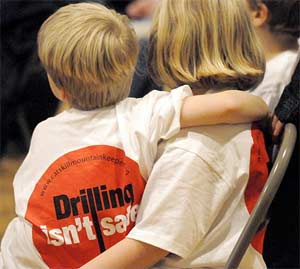
Will the boom in natural gas drilling contaminate America's water supply?
This week, NOW (PBS) talks with filmmaker Josh Fox about "Gasland", his Sundance award-winning documentary on the surprising consequences of natural gas drilling. Fox's film—inspired when the gas company came to his hometown—alleges chronic illness, animal-killing toxic waste, disastrous explosions, and regulatory missteps.
See: Backlash: The Smear Campaign. Immediately upon the film's release, Energy In Depth issued a paper claiming to "debunk" the film's documentary evidence.
See: Mike Hale. The New York Times. June 21, 2010. The Costs of Natural Gas, Including Flaming Water.
Dave Shiflett. Bloomberg.com. June 21, 2010. Cook a Hamburger and Blow Up Your Polluted Fracking Town.
See: DEC Fracks NYC & Josh Fox of Water Under Attack's Responds
See also: Gasland Trailer 2010.
See: Drilling Isn't Safe.
Playing Dirty
If you have not seen Gasland, take some time to watch it. You can view it on HBO, or purchase from Amazon. The trailer can be seen here: Gasland Trailer.
Now this movie has made its way to the Oscars and as exciting as that is, the Natural Gas Industry is now in full attack form doing whatever it takes to tear this nomination apart.
This works because people that see this movie are touched. They are touched because they have been directly affected by hydraulic fracturing or they want to be a voice for those that have been and don’t want to become a silent statistic as well.
Energy In Depth, a group sponsored by a coalition of natural gas companies, sent a letter to the Academy asking that Gasland — a film about a controversial mining technique called hydro-fracking — be removed from the Documentary Feature category.
It is a good thing that they are reacting so publicly, as they are bringing far more attention to the film and the issue at hand. Josh issued an open letter to the media today, responding to the natural gas industries attempt to slam Gasland. You can read Josh’s letter here on in our Facebook Notes “An Open Letter from Josh Fox.”
Join our communities on Twitter & Facebook and become apart of this conversation, it is one of the most important that you will have.
Azita Ardakani {Founder of Lovesocial}
Edit-Neil Zusman, 2011-02-10
See: Energy in Depth | Mixplex
See: Gasland - The Debate











